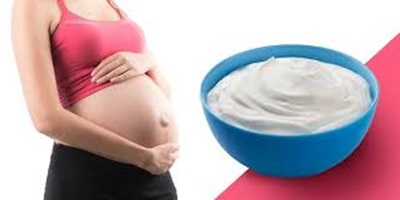Mayonnaise during Pregnancy: Is it Safe?
Mayonnaise during Pregnancy: Is it Safe? Can You Eat Mayonnaise When Pregnant?

Yes, you can safely eat mayonnaise during pregnancy as long as the label indicates it’s made with pasteurized eggs. You can also make your mayonnaise at home without using eggs.
There are many do’s and don’ts in pregnancy books, such as:
- Do drink extra water to stay hydrated.
- Don’t smoke or drink alcoholic beverages.
- Do get plenty of rest.
- Don’t eat unpasteurized or certain raw foods like raw eggs, soft cheeses, and uncooked fish.
Mayonnaise during Pregnancy: Types to Avoid
To ensure mayonnaise is safe during pregnancy, consider the following:
- Pasteurized Eggs: Ensure the mayonnaise is made with pasteurized eggs to avoid the risk of salmonella. Most commercially available mayonnaise in the U.S. is made with pasteurized eggs, but it’s important to check the label.
- Homemade Mayonnaise: If making homemade mayonnaise, use pasteurized eggs or an egg substitute safe for pregnant women.
- Storage: Properly store mayonnaise and use it before expiration to avoid foodborne illnesses.
By following these guidelines, you can safely include mayonnaise in your diet during pregnancy.
Mayonnaise Alternatives for Pregnancy
If you’re looking for mayonnaise alternatives during pregnancy, here are some options:
- Greek Yogurt: A thick, creamy alternative used in sandwiches, salads, and dips. It’s also high in protein.
- Avocado: Mashed avocado or guacamole provides a creamy texture and healthy fats, perfect for sandwiches and salads.
- Hummus: A flavorful option made from chickpeas, olive oil, and tahini. It’s rich in protein and fiber.
- Mustard: Adds a tangy flavor to sandwiches and salads with fewer calories.
- Olive Oil: Use in dressings or as a spread to provide healthy fats and a different texture.
- Nut Butter: Almond or peanut butter can be used in some recipes for a creamy texture and added protein.
- Cottage Cheese: Blended cottage cheese can mimic the texture of mayonnaise and is high in protein.
- Tahini: This sesame seed paste is rich and creamy, making it a good substitute in various recipes.
These alternatives provide similar textures and flavors while offering different nutritional benefits.

Side Effects of Eating Unsafe Mayonnaise When Pregnancy
Eating unsafe mayonnaise during pregnancy can pose several risks due to potential foodborne illnesses:
- Salmonella: Mayonnaise made with raw or undercooked eggs can harbor Salmonella bacteria, leading to salmonellosis, which causes fever, diarrhea, and abdominal cramps. This infection can be more severe for pregnant women and may affect the baby.
- Listeria: Mayonnaise made from unpasteurized ingredients can be contaminated with Listeria monocytogenes, causing listeriosis, which can lead to miscarriage, premature birth, or severe infection in the newborn.
- Staphylococcus Aureus: Poorly stored mayonnaise can be contaminated with Staphylococcus aureus, leading to staph food poisoning with symptoms like nausea, vomiting, and stomach cramps.
- E. Coli: Contaminated mayonnaise can cause severe gastrointestinal distress, including bloody diarrhea and abdominal pain. Pregnant women are more vulnerable to complications from this infection.
The Bottom Line
- Choose mayonnaise made with pasteurized eggs.
- Avoid homemade mayonnaise unless using pasteurized eggs.
- Properly store mayonnaise and use it within the recommended time frame.
- Check expiration dates and discard any mayonnaise that appears spoiled.
By following these precautions, you can safely include mayonnaise in your diet during pregnancy


